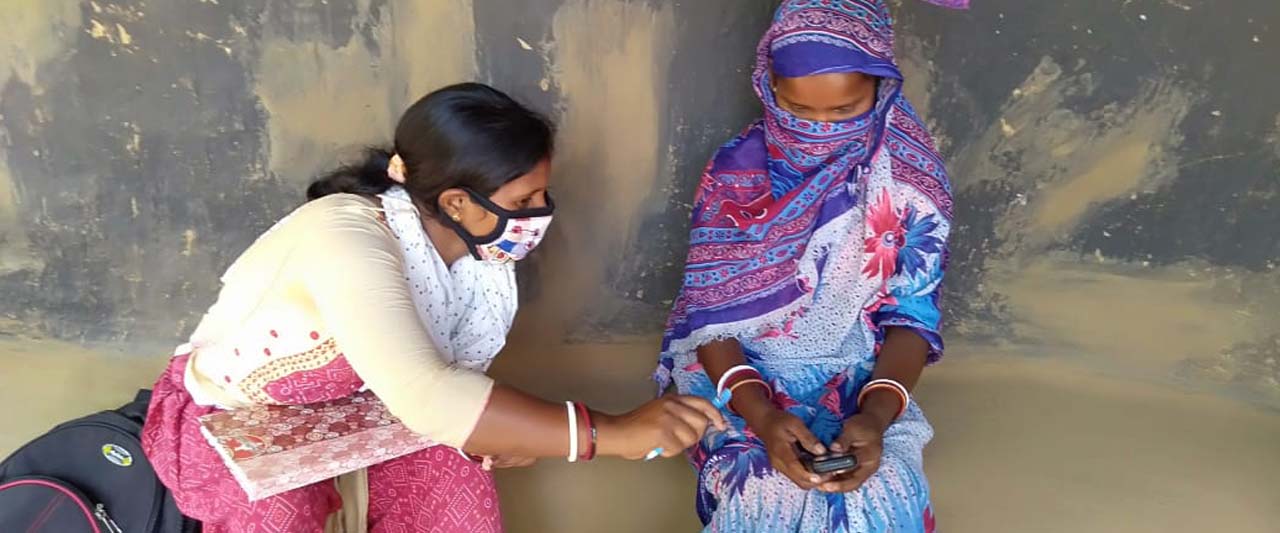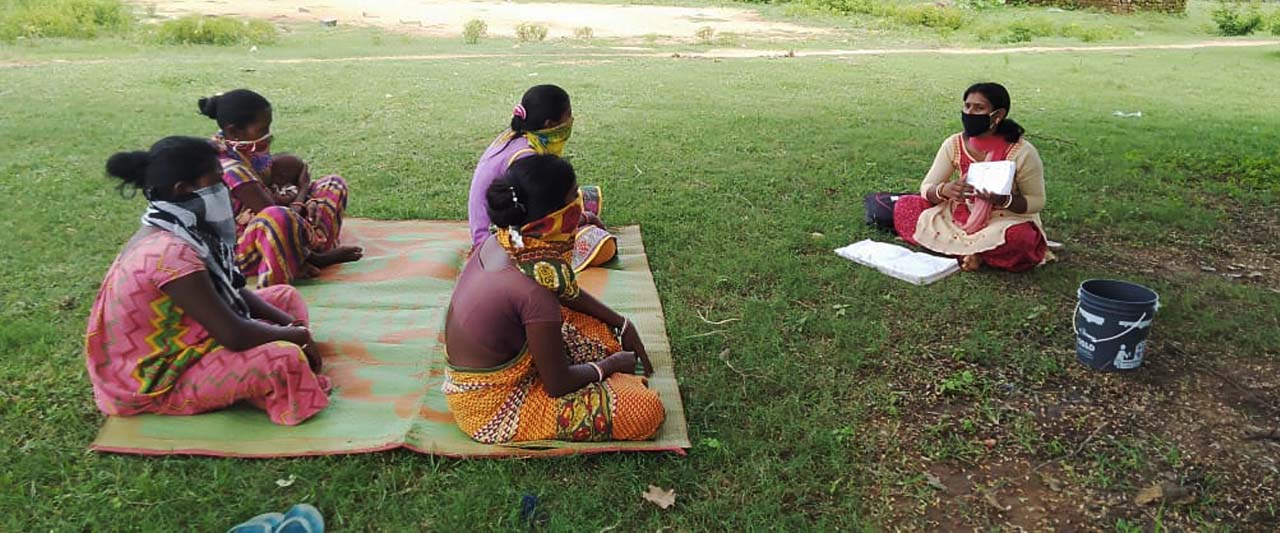By Akanksha Sharma and Anushree Banerjee
Ipas Development Foundation, India
Rina Pradhan is a youth leader working in rural communities of Jharkhand. After receiving training from the Ipas Development Foundation (IDF), she began conducting community and school-level meetings to provide information on accessing safe, timely sexual and reproductive health services.
But her work got much more difficult with the outbreak of the COVID-19 pandemic. The national lockdown restricted mobility and the availability of public transportation. Access to sexual and reproductive health services was also limited as hospitals grappled to manage COVID-19 cases. And the pandemic disconnected social networks—including formal and informal information channels. This especially impacted rural communities where young women and girls face restrictions and barriers even in ordinary times.

Rina became part of an IDF team conducting community research to understand the impact of COVID-19 on the sexual and reproductive health of women and girls. That experience has left her more motivated than ever to continue her work supporting access to sexual and reproductive health services.
She tells the story of two young women who reached out to her for support for terminating their unwanted pregnancies during the pandemic. “It was not the first time I had gotten such calls,” Rina recalls, “but the stress, helplessness and anxiety were intense. I helped them get services, but it was not easy. The nearby hospital had been converted to a COVID-care facility, private clinics were closed, and finding public transport was a challenge. But after multiple phone calls and coordinating with relevant providers, I was able to help both of them get a safe abortion.”
“A lot of things changed during the pandemic,” she adds. “For young, unmarried girls, closure of schools has meant an end to their education, greater involvement in domestic chores, restricted mobility and in many cases early marriage. For married women, the pandemic has meant increased household and caretaking responsibilities, interference from men in household decisions, and new challenges brought on by reduced financial income.”
One particularly disturbing impact of the lockdown, Rina says, is the increase of domestic violence. Women have reported that altered family dynamics (with men staying at home) have led to sexual abuse, including forced sex, and that women’s misery has been compounded by limited social interactions and support.
This deeper understanding of the impact of COVID-19 on women and girls has had a profound effect on Rina. “Seeing the challenges that women in my community face has greatly influenced my outlook towards my work. I now have a better appreciation of the background influences that impact women’s and girls’ reproductive decisions. I am more empathetic towards them and have adapted community messages to include a broader, more comprehensive approach,” she says. “What I earlier thought to be just a health service, I now realize can actually be life-changing for a young woman. I believe I have the opportunity to positively influence their health and lives, and I am hugely motivated to support them to the best of my capacities.”
This important work by Rina has been made possible through funding from Global Affairs Canada, which leads Canada’s international development initiatives to empower women and girls and promote gender equality.


